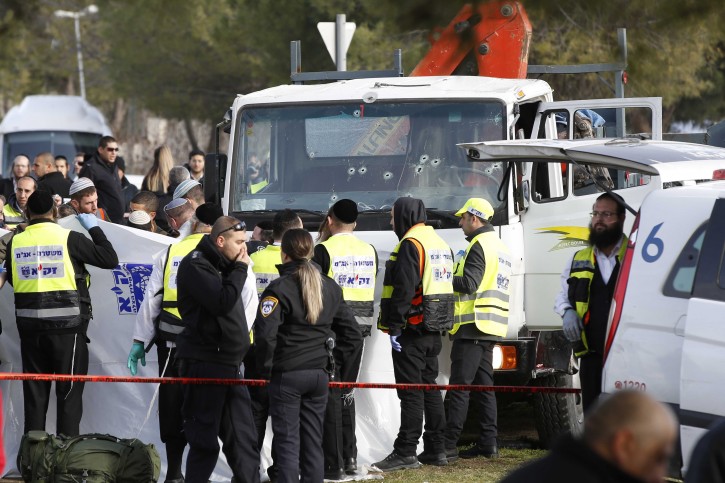The barbaric Islamic State-inspired terrorist truck attack in Jerusalem that has killed four young Israeli soldiers and left 17 wounded comes at a challenging time for Prime Minister Benjamin Netanyahu. Applauded from the sidelines by the Islamist terrorist ghouls of Hamas in Gaza, the attack was similar to last month’s murderous Christmas market assault by Islamic State in Berlin and the jihadists’ Bastille Day onslaught at the French resort of Nice. It suggests an ominous further escalation in the wave of terrorist stabbings and shootings that have targeted Israel’s urban centres for 15 months, leaving more than 40 Israelis dead and hundreds more wounded. As well, it indicates an increasing role for Islamic State in the violence in Israel despite the Jewish state being way ahead of virtually any other country when it comes to security and defeating terrorism.
This comes at a difficult time for Mr Netanyahu as he deals with the deep divisions opened up in Israeli society by last week’s unprecedented conviction by a military court of a teenage conscript, Elor Azaria, who was videoed firing a single bullet at close range into the skull of a Palestinian assailant. The Palestinian was wounded and lying on his back minutes after he and an accomplice had lunged at a group of Israeli soldiers in Hebron with knives. The court, in convicting Sgt Azaria of manslaughter, punishable by a 20-year jail sentence, held that the wounded Palestinian did not pose an immediate threat. The trial has been described as being about “the soul of the Israeli army” and the young men and women the Jewish state deploys to protect its citizens. Prominent political leaders such as Education Minister Naftali Bennett and army reserve generals such as Uzi Dayan have questioned why Sgt Azaria was put on trial. “This soldier was sent by the state of Israel to defend against terror during war,” Mr Bennett has argued, while General Dayan has declared that “terrorists must be killed”, adding that as an army commander he allowed the killing of terrorists even if they did not pose an immediate danger.
Read the full editorial at The Australian.

